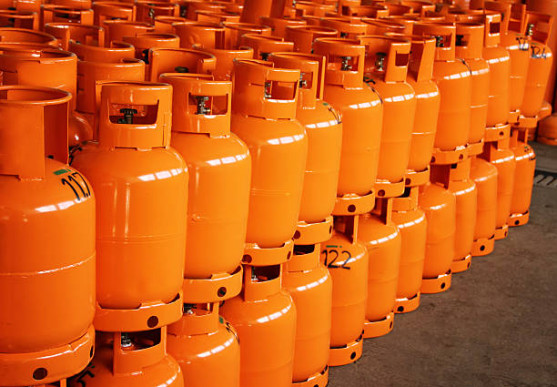- 4660
- 0
Sharing Ideas and Updates on LPG in Nigeria and related information to enable effective collaboration within the LPG Value Chain
Strategies For Nigeria To Achieve LPG Production Targets And Fuel The National Gas Expansion Program.

Nigeria's National Gas Expansion Programme (NGEP) requires approximately 2.6 million metric tonnes of Liquefied Petroleum Gas (LPG) production by 2025. Simbi Wabote, the executive secretary of the Nigerian Content Development Monitoring Board (NCDMB), shared this information during his speech at the 4th Edition of the Nigerian Oil & Gas Opportunity Fair (NOGOF) in Yenagoa, Bayelsa State. Wabote highlighted the growth in LPG consumption, which rose from 360,000 tonnes in 2015 to 1.4 million tonnes in 2022. Despite commendable progress, he emphasized that half of Nigeria's LPG demand is still met through imports.
Wabote emphasized the need to bridge the gap between local production and market demand, with NGEP setting a projection of 4 million tonnes by 2025. He identified various opportunities for investment, including local processing, storage depots, trucking, cylinder manufacturing, distribution pipelines, and conversion kits. To encourage increased production and meet consumption targets, the Federal Government must implement fiscal policies that motivate stakeholders in the LPG industry.
Wabote acknowledged that current policies, guidelines, regulations, and statutes have made the business environment attractive to investors. He mentioned President Muhammadu Buhari's declaration of the Decade of Gas in 2021, which aims to stimulate gas development for domestic use and exports to boost revenue generation. Other policies, such as the automotive gas policy promoting Compressed Natural Gas (CNG) as an alternative fuel for vehicles, have created opportunities for conversion kit suppliers and installation. Industries have also adopted CNG or LNG for their power generation to manage costs. Wabote highlighted the Nigerian Gas Flare Commercialisation Programme (NGFCP) as another policy targeting gas development and utilization while reducing greenhouse gas emissions in line with global climate change efforts. He emphasized that each policy and regulation present opportunities that can yield significant benefits when harnessed and utilized effectively.
To meet the National Gas Expansion Programme (NGEP) goals for Nigeria, several methods can be implemented:
Increase domestic production: Nigeria can focus on boosting domestic production of Liquefied Petroleum Gas (LPG) to reduce reliance on imports. This can be achieved through exploration and development of gas fields, incentivizing investment in LPG production facilities, and promoting partnerships with international companies to transfer technology and expertise.
Infrastructure development: Enhancing the infrastructure for LPG production, storage, and distribution is crucial. This includes establishing more processing plants, storage depots, and distribution networks to ensure efficient supply and meet the growing demand. Investment in transportation infrastructure, such as Pipelines, terminals, and trucking facilities is also necessary.
Investment in conversion kits: Encouraging the use of conversion kits for vehicles and power generation plants to switch from traditional fuels to LPG or Compressed Natural Gas (CNG) can significantly increase domestic consumption. The government can provide incentives and support for the adoption of these conversion kits, making them more accessible and affordable for consumers.
Policy and regulatory framework: Implementing favorable fiscal policies, guidelines, regulations, and statutes can attract investment and create an enabling environment for the LPG industry. This includes providing tax incentives, streamlining licensing and permit processes, and ensuring clarity and stability in the regulatory framework.
Public awareness and education: Conducting awareness campaigns and educational programs to promote the benefits of LPG and CNG, such as their affordability, cleanliness, and environmental advantages, can encourage greater adoption among the population. This can be done through media campaigns, workshops, and collaborations with industry associations and community organizations.
Public-private
partnerships: Collaborating with private sector entities, both domestic and
international, can accelerate the development of the LPG sector. This can
involve joint ventures, technology transfer agreements, and investment
partnerships that leverage the expertise and resources of both public and
private entities.
Research and development: Investing in research and development initiatives focused on LPG production, storage, and utilization technologies can lead to innovations that improve efficiency, reduce costs, and enhance safety in the industry. Supporting research institutions and facilitating knowledge exchange among Industry stakeholders can drive progress in this area.
By employing these methods, Nigeria can work towards meeting its LPG production targets and realize the objectives of the NGEP, fostering economic growth, energy security, and sustainable development.
















0 Comment.